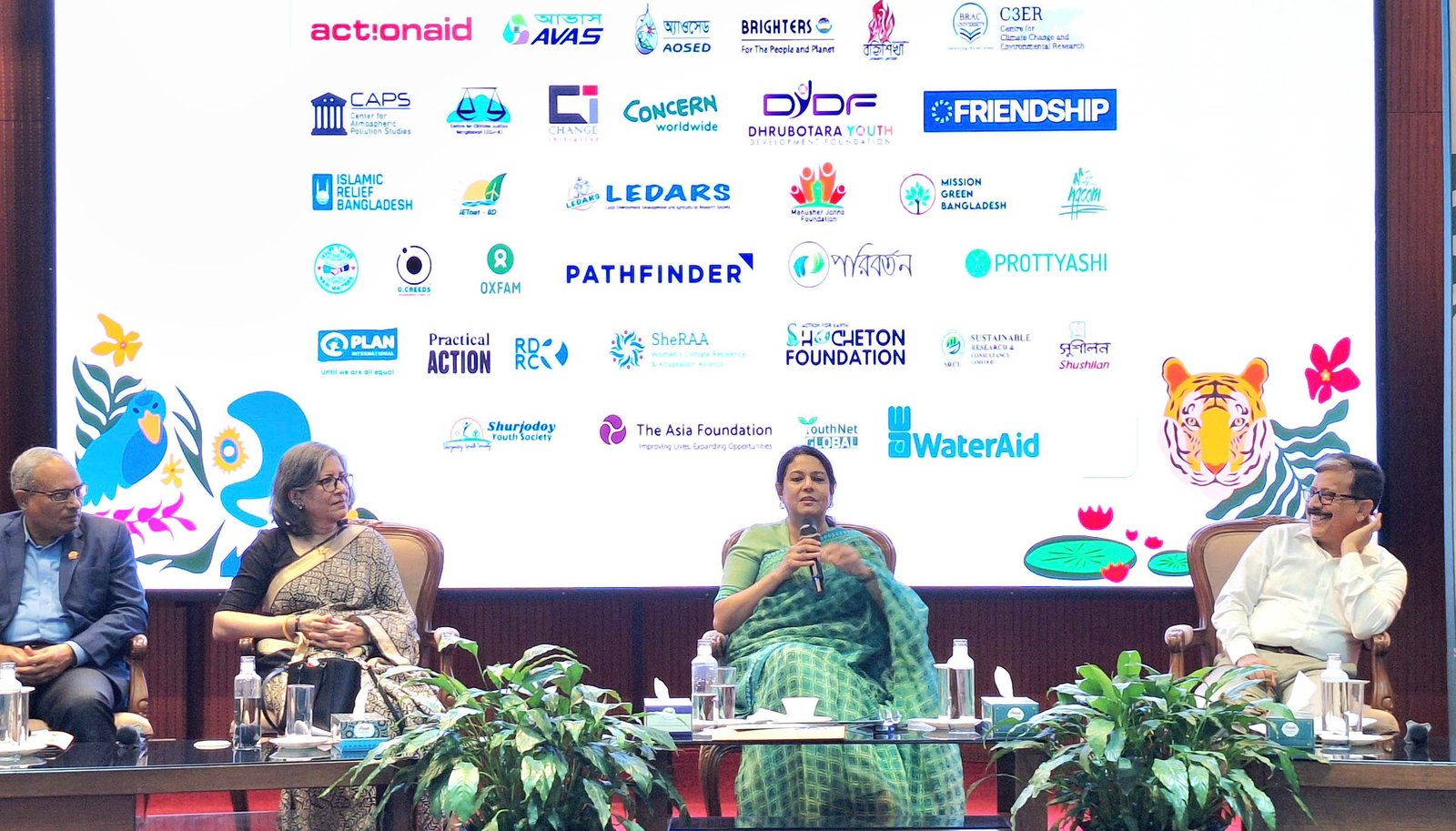
Advisor to the Ministry of Environment, Forest and Climate Change (MoEFCC) and the Ministry of Water Resources (MoWR) Syeda Rizwana Hasan has emphasized the need to fulfill global commitments on climate finance. She said that if developed nations fail to increase their contributions to combat climate change, climate-vulnerable countries like Bangladesh will face existential threats. Bangladesh, she noted, must play a stronger role in ensuring climate justice.
She made these remarks while speaking as the chief guest at a program titled “Road to Belem COP30: People-Led Policy– Bangladesh Position @COP30”, held today at the Department of Environment in Dhaka.
The Advisor said that the losses caused by climate change cannot be compensated with money alone. Financial aid cannot restore eroded rivers, lost biodiversity, or human security. She stressed that environmental and climate risks must be placed at the center of national development planning.
Rizwana Hasan further stated, if we fail to embed climate justice into our development philosophy and decision-making now, future generations will face an unbearable reality. Economic growth will then no longer be humane or sustainable.
She also emphasized that Bangladesh’s climate action should go beyond speeches at international forums and translate into practical actions on the ground. “Stopping illegal sand extraction, protecting rivers, and standing with local administrations for environmental protection — these are the true indicators of climate leadership,” she added.
Among others, ActionAid Bangladesh Country Director Farah Kabir, Executive Director of Nature Conservation Management (NaCOM) Dr. S. M. Munjurul Hannan Khan, Additional Director General of the Department of Environment Sohrab Ali, Director Mirza Shawkat Ali, and Assistant Director of C3ER Roufa Khanam also spoke at the event.
Earlier in the day, Environment Advisor addressed the 8th Convocation Ceremony of the University of Liberal Arts Bangladesh (ULAB), held at the Bangladesh-China Friendship Conference Centre in Sher-e-Bangla Nagar, Dhaka. There she stressed that development must not come at the cost of environmental degradation, adding that protecting rivers, forests, and wetlands is a matter of survival, equity, and human dignity. Highlighting the challenges of climate change and unsustainable practices, she reminded the graduates that meaningful progress can only be achieved when economic growth is inclusive, sustainable, and respectful of nature.



